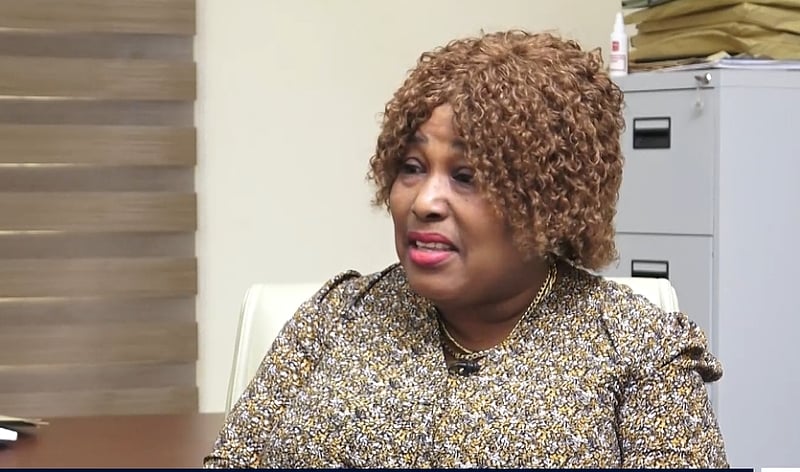Naa Yaa Jantuah, a presidential staffer, has vehemently criticized Bernard Antwi Boasiako, also known as Chairman Wontumi, the Ashanti Regional Chairman of the New Patriotic Party (NPP), following his recent arrest. Jantuah’s critique centers on Wontumi’s perceived cowardice in the face of legal proceedings, contrasting his past boasts of power and influence with his current demeanor. She challenged him to “man up” and confront the legal process, drawing parallels to other political figures, including women, who have faced similar situations without resorting to theatrics. Jantuah emphasized that the legal system is designed to determine guilt or innocence, and Wontumi should allow the process to unfold without undue drama.
Jantuah’s criticism extends to the NPP’s handling of the situation, accusing the party of unnecessarily dramatizing what she considers a standard legal procedure. She argues that the NPP’s response is disproportionate and creates an unwarranted spectacle around Wontumi’s case. Jantuah pointed to the experiences of numerous National Democratic Congress (NDC) appointees who faced repeated summons by investigative bodies without the same level of public attention or party intervention. She highlighted the quiet dignity with which these individuals cooperated with investigations, contrasting it with the perceived clamor surrounding Wontumi’s arrest.
The core of Jantuah’s argument rests on the principle of equality before the law. She contends that NPP members are not entitled to special treatment and should not attempt to circumvent or influence the legal process. She underscored the importance of allowing investigative bodies to perform their duties without interference, emphasizing that everyone, regardless of political affiliation, is subject to the same legal standards. This, she argues, is crucial for upholding the rule of law and ensuring a fair and just legal system for all citizens.
Jantuah further elaborated on the previous treatment of NDC appointees during investigations, emphasizing the frequency and discreet nature of these proceedings. She cited examples of individuals summoned to various investigative bodies, including the Economic and Organized Crime Office (EOCO), the Bureau of National Investigations (BNI), and the Criminal Investigations Department (CID), sometimes up to 150 times. Jantuah stressed the lack of public awareness surrounding these investigations, attributing it to the individuals’ cooperation and the absence of any orchestrated drama. She used her own experience as an example, noting that she underwent similar investigations without public knowledge, demonstrating that legal processes can be conducted efficiently and discreetly.
By highlighting these past experiences, Jantuah aims to expose what she perceives as a double standard in the NPP’s reaction to Wontumi’s arrest. She argues that the NPP’s public outcry and pronouncements are unwarranted and contribute to politicizing a legal matter. Jantuah reiterates that allowing the judicial process to run its course without undue interference is fundamental to a functioning democracy. She suggests that the NPP’s approach undermines this principle and creates an unnecessary distraction from the core issue at hand.
Jantuah’s condemnation of Wontumi and the NPP’s response encapsulates a broader call for adherence to legal procedures and the avoidance of political grandstanding. She advocates for a level playing field within the legal system, where all individuals are treated equally regardless of their political affiliations. Jantuah emphasizes that allowing due process to unfold without manipulation or theatrics is essential for maintaining public trust in the judiciary and ensuring the integrity of the legal system. Her criticism underscores the importance of separating political considerations from legal proceedings and upholding the principle of equality before the law for all citizens.


